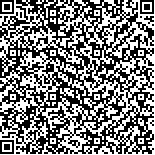| Quote
: |
罗敏,杜英杰,姜燕诗,肖金银,林仁敬,李帅军.基于内质网应激PERK信号通路探讨芍药汤对UC大鼠的作用机制[J].湖南中医药大学学报英文版,2021,41(11):1663-1668.[Click to copy
] |
|
| |
|
|
| This paper
:Browser 4305times Download 2094times |
| 基于内质网应激PERK信号通路探讨芍药汤对UC大鼠的作用机制 |
| 罗敏,杜英杰,姜燕诗,肖金银,林仁敬,李帅军 |
| (湖南中医药大学第二附属医院肛肠科, 湖南 长沙 410005) |
| 摘要: |
| 目的 通过检测内质网应激蛋白激酶R样内质网激酶(PERK)信号通路相关基因及蛋白的表达,探讨芍药汤治疗溃疡性结肠炎(UC)的作用机制。方法 100只SD大鼠建立胃肠湿热证模型后,随机抽取25只作为空白组,其余大鼠用三硝基苯磺酸法在其基础上建立UC大鼠模型后分为模型组、柳氮磺吡啶组、芍药汤组,每组25只。空白组、模型组利用生理盐水灌胃,柳氮磺吡啶组利用柳氮磺吡啶灌胃,芍药汤组利用芍药汤灌胃。在灌胃第7、14天,各组大鼠分别进行大鼠疾病活动指数(DAI)评分;同时各组随机处死数量相同的大鼠进行大鼠的结肠黏膜损伤指数(CMDI)评分;用Western blot法及RT-PCR法检测结肠组织PERK蛋白和mRNA的表达。结果 造模4 d后,各模型大鼠结肠组织可见溃疡面,并经病检证实,提示造模成功。与空白组比较,各组各时间点DAI评分、CMDI评分均增高(P<0.05)。(1)DAI评分:灌胃7、14 d时,柳氮磺吡啶组与芍药汤均低于模型组(P<0.05);灌胃14 d时,芍药汤组较柳氮磺吡啶组低(P<0.05)。(2)CMDI评分:灌胃7、14 d时,模型组、柳氮磺吡啶组均高于芍药汤组(P<0.05)。(3)p-PERK蛋白和mRNA的表达:灌胃7 d时,与空白组相比,模型组及柳氮磺吡啶组p-PERK蛋白和mRNA表达均升高(P<0.05);芍药汤组p-PERK蛋白和mRNA表达较模型组低(P<0.05);灌胃14 d时,与空白组相比,模型组及柳氮磺吡啶组p-PERK蛋白和mRNA表达均升高(P<0.05);芍药汤组p-PERK蛋白和mRNA表达较模型组及柳氮磺吡啶组低(P<0.05)。结论 芍药汤通过抑制胃肠湿热型UC大鼠结肠ESR过程中PERK信号通路的激活,从而改善UC大鼠的症状及体征,这可能是其治疗UC的作用机制。 |
| 关键词: 芍药汤 溃疡性结肠炎 胃肠湿热型 内质网应激 PERK信号通路 DAI评分 CMDI评分 |
| DOI:10.3969/j.issn.1674-070X.2021.11.004 |
| Received:January 13, 2021 |
| 基金项目:湖南省教育厅科学研究项目(17C1232);湖南省中医药科研计划项目(2021101);湖南省中医药防治肛肠疾病重点研究室[湘中医药函(2020)51号]。 |
|
| Mechanism of Shaoyao Decoction on UC Rats Based on Endoplasmic Reticulum Stress PERK Signal Pathway |
| LUO Min,DU Yingjie,JIANG Yanshi,XIAO Jinyin,LIN Renjing,LI Shuaijun |
| (Proctology Department, The Second Affiliated Hospital of Hunan University of Chinese Medicine, Changsha, Hunan 410005, China) |
| Abstract: |
| Objective To investigate the mechanism of Shaoyao Decoction in the treatment of ulcerative colitis (UC) by detecting the expression of protein kinase R-like endoplasmic reticulum kinase (PERK) signal pathway related genes and proteins mediated by endoplasmic reticulum stress. Methods 100 SD rats were established the model of gastrointestinal dampness and heat syndrome, 25 rats from them were randomly selected as the blank group, and the rest of the rats were established with trinitrobenzene sulfolnic acid (TNBS) based on the model of gastrointestinal dampness and heat syndrome. They were divided into the model group, the sulfapyridine group and the Shaoyao Decoction group, with 25 rats in each group. The blank group and the model group were infused with saline, the sulfapyridine group was infused with sulfapyridine, and the Shaoyao Decoction group was infused with Shaoyao Decoction. On the 7th and 14th days, the rats in each group were scored with disease activity index (DAI). At the same time, the same number of rats in each group were randomly executed for scoring with colonic mucosal damage index (CMDI). Western blot method and RT-PCR method were used to detect the expression of PERK protein and mRNA in colon tissue. Results After 4 days of molding, the ulcer surface can be seen in the colon tissue of each model rat, and it was confirmed by the medical examination, indicating that the molding was successful. Compared with the blank group, the DAI score and CMDI score of each group had increased at each time period. (1) DAI score:on the 7th and 14th days, the sulfapyridine group and the Shaoyao Decoction group were lower than the model group (P<0.05); on the 14th day, the Shaoyao Decoction group was lower than the sulfapyridine group (P<0.05). (2) CMDI score:on the 7th and 14th days, the model group and the sulfapyridine group were higher than the Shaoyao Decoction group (P<0.05). (3) Expression of p-PERK protein and mRNA:on the 7th day, the model group and the sulfapyridine group were higher than the blank group (P<0.05); the Shaoyao Decoction group was lower than the model group (P<0.05); on the 14th day, the model group and the sulfapyridine group were higher than the blank group (P<0.05); the Shaoyao Decoction group was lower than the model group and the sulfapyridine group (P<0.05). Conclusion Shaoyao Decoction can improve the symptoms and signs of UC rats by inhibiting the activation of PERK signal pathway in the process of endoplasmic reticulum stress of colon in rats with UC of gastrointestinal dampness and heat syndrome, which may be the mechanism of its treatment of UC. |
| Key words: Shaoyao Decoction ulcerative colitis gastrointestinal dampness and heat syndrome endoplasmic reticulum stress PERK signal pathway DAI score CMDI score |
|

二维码(扫一下试试看!) |
|
|
|
|


